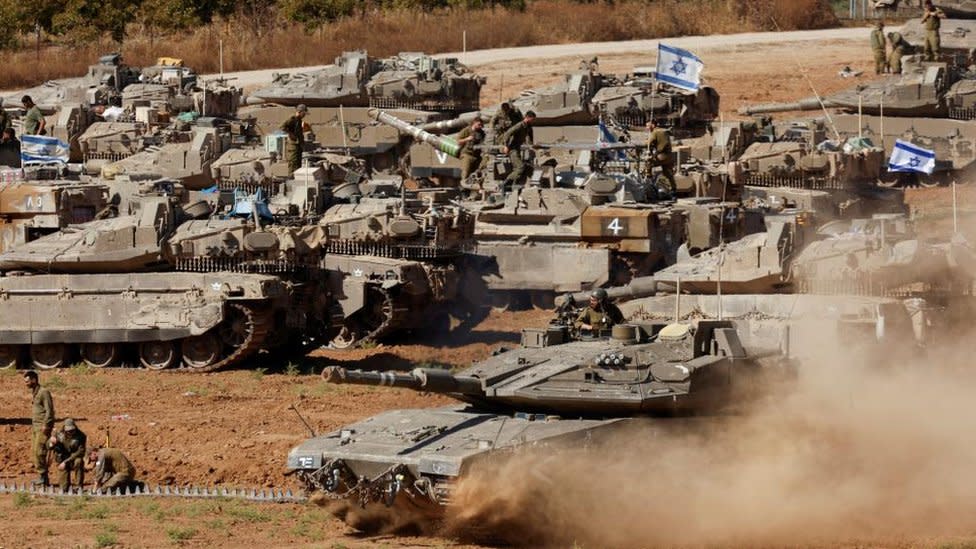‘Sustainable calm’ proposal splits Israel and Hamas

After months of stalemate, the search for peace in Gaza has reached a critical stage. UN chief Antonio Guterres says it is a "decisive moment for the Palestinian and Israeli people and for the fate of the entire region".
There seems to be common ground between most sides about the principles: a ceasefire should take place alongside the release of Israeli hostages and Palestinian prisoners. Various draft agreements have been drawn up, setting out a complex process of how it would all work.
There is some disagreement over the detail of what should happen to whom and when and in what order. Israeli officials say, for example, that its female soldiers should be released earlier than envisaged.
They also say the texts should be clearer that the first 33 hostages to be released must be alive and are worried about not having a veto over which Palestinian prisoners would be released.
These are issues that could potentially be surmounted through negotiation.
But there is a more fundamental sticking point about a core principle that may be harder to get past and that is when the war should end.
The opening words of the draft agreement - supported by Hamas - declares that there should be a "temporary cessation of military operations between the two parties". This is largely unproblematic. Six weeks would pass while people are released, Israeli forces withdraw from some areas, displaced Gazans would be able to return to what if anything is left of their homes.
But then stage two would begin. The draft agreement then talks about a "return to sustainable calm", which it defines as "a permanent cessation of military and hostile operations".
It is this that seems to be unacceptable to Israel's government. In a statement, the Prime Minister Benjamin Netanyahu said: "Israel will not allow Hamas to restore its evil rule in the Gaza Strip, Israel will not allow it to restore its military capabilities to continue striving for our destruction. Israel cannot accept a proposal that endangers the security of our citizens and the future of our country."
In other words, Israel's government wants the right to continue taking the fight to Hamas in the long run. By contrast, Hamas wants a permanent ceasefire.
What is not clear is whether there is a way for Qatari, Egyptian and American negotiators to find a middle path through this.
It may be that all of this is part of the negotiation. Public statements are frequently used in negotiations to put pressure on the other side.
The announcement by Hamas that it supports a particular draft could be an attempt to push Israel into making concessions and divide it from its allies. Israel's warnings about an imminent military operation in Rafah could be an attempt to extract better terms from Hamas.
But the question of whether any ceasefire is permanent or not looks hard to square with clever diplomatic language.
Israel has agreed to send a delegation to Cairo but with modest ambitions - not to hammer out a deal but "to exhaust the possibility of reaching an agreement under conditions acceptable to Israel".
Much will depend on what the US government decides.
So far, US spokespeople have fallen over themselves to avoid making any comment on the deal Hamas has signed up to. They have limited themselves to asserting that an agreement is still "achievable" and to warning firmly against a military operation in Rafah.
That is because if the US were to throw its weight behind the current text, then Mr Netanyahu might be forced to choose between his main ally and the ultra-nationalist hardliners propping up his government who oppose any compromise.
Mr Netanyahu has survived many crises in his political career by postponing difficult decisions.
But President Biden has it in his gift to force Israel's leader to make a choice that he might rather avoid.
